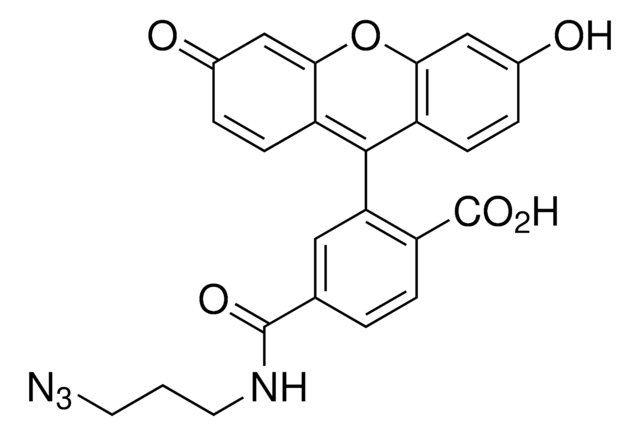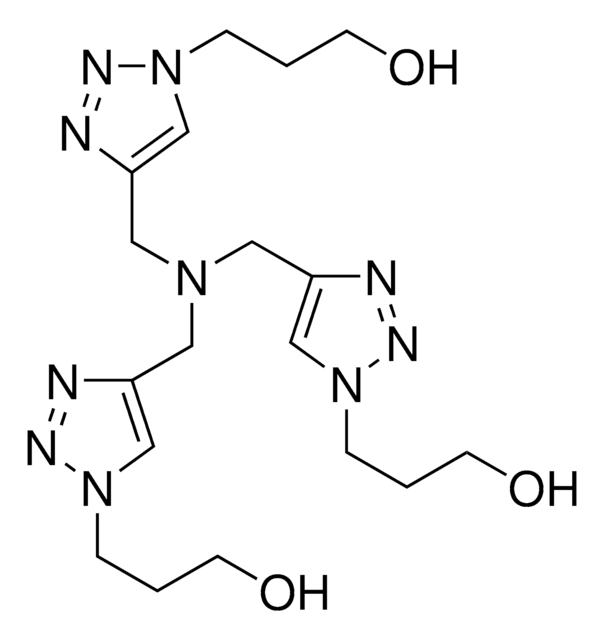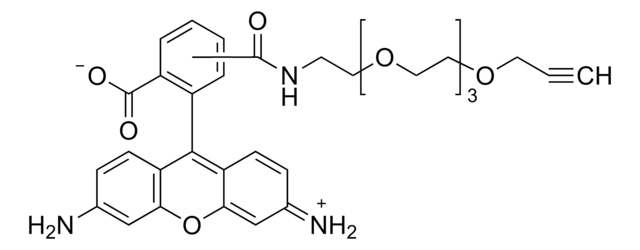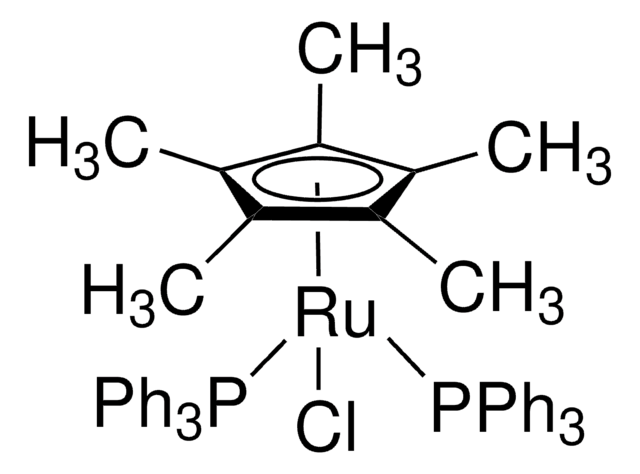760757
Azide-fluor 545
Synonym(s):
5-Carboxytetramethylrhodamine-azide, TAMRA PEG azide., TAMRA-azide, Tetramethylrhodamine
Sign Into View Organizational & Contract Pricing
All Photos(2)
About This Item
Empirical Formula (Hill Notation):
C33H39N6O7
Molecular Weight:
631.70
UNSPSC Code:
12171501
NACRES:
NA.22
Recommended Products
Related Categories
Application
Azide-fluor 545 can be used to label alkyne/cyclooctyne containing molecules or biomolecules by azide-alkyne click chemistry.
Can be used to detect or label alkyne- or cyclooctyne-containing molecules or biomolecules by fluorescence spectroscopy following an azide-alkyne click chemistry reaction.
Spectral Properties: Abs/Em = 546/565 nm
Spectral Properties: Abs/Em = 546/565 nm
related product
Product No.
Description
Pricing
Storage Class Code
11 - Combustible Solids
WGK
WGK 3
Flash Point(F)
Not applicable
Flash Point(C)
Not applicable
Choose from one of the most recent versions:
Already Own This Product?
Find documentation for the products that you have recently purchased in the Document Library.
Surface functionalization of exosomes using click chemistry.
Smyth T, et al.
Bioconjugate Chemistry, 25(10), 1777-1784 (2014)
Post isolation modification of exosomes for nanomedicine applications.
Hood JL.
Nanomedicine (London, England), 11(13), 1745-1756 (2016)
A toolbox for controlling the properties and functionalisation of hydrazone-based supramolecular hydrogels.
Poolman JM, et al.
Journal of Material Chemistry B: Materials for Biology and Medicine, 4(5), 852-858 (2016)
Genetic Encoding of a Bicyclo [6.1. 0] nonyne-Charged Amino Acid Enables Fast Cellular Protein Imaging by Metal-Free Ligation.
Borrmann A, et al.
Chembiochem, 13(14), 2094-2099 (2012)
A Bioorthogonal Dual-Labeling Strategy to Unravel Lignification Dynamics in Plants.
Lion C, et al.
Cell Chemical Biology, 24(3), 326-338 (2017)
Articles
Explore the principles and applications of click chemistry in drug discovery, highlighting efficient reactions that streamline the synthesis of bioactive compounds.
Our team of scientists has experience in all areas of research including Life Science, Material Science, Chemical Synthesis, Chromatography, Analytical and many others.
Contact Technical Service
![Tris[(1-benzyl-1H-1,2,3-triazol-4-yl)methyl]amine 97%](/deepweb/assets/sigmaaldrich/product/structures/179/695/86a721c8-2a4c-4e4f-bc36-6276ce7a941f/640/86a721c8-2a4c-4e4f-bc36-6276ce7a941f.png)







